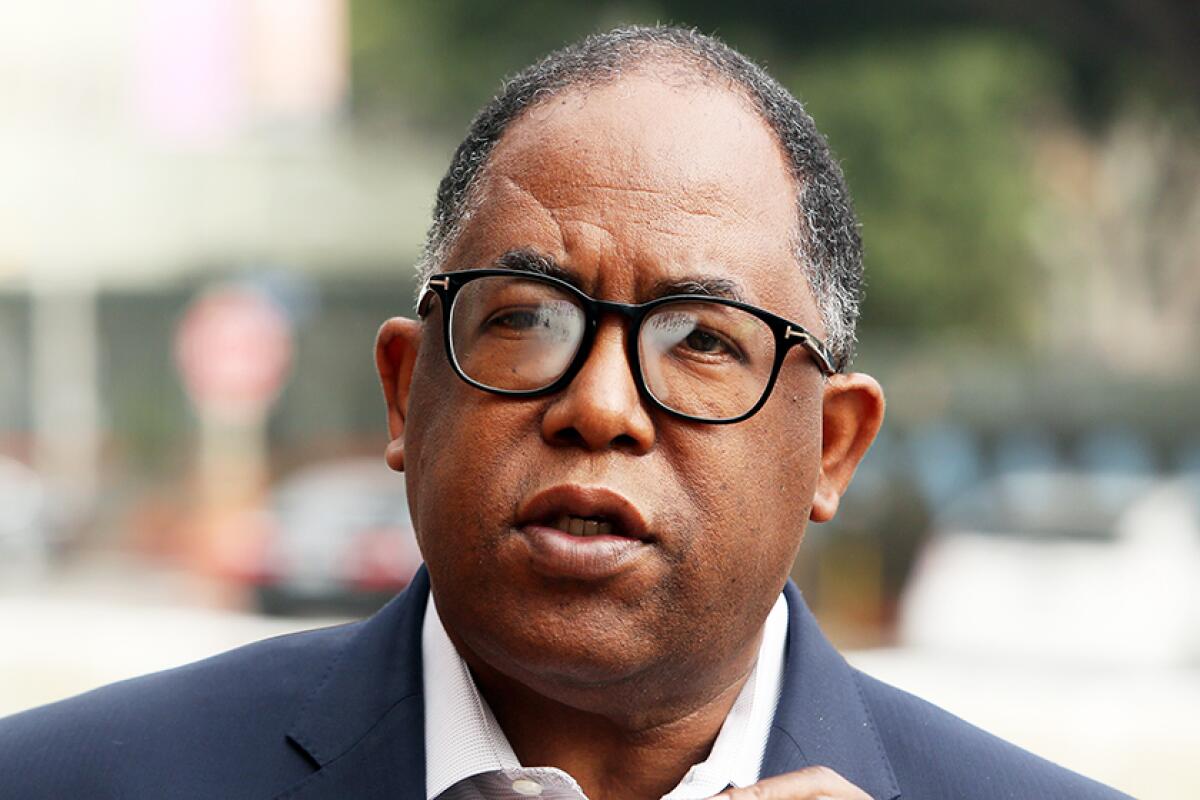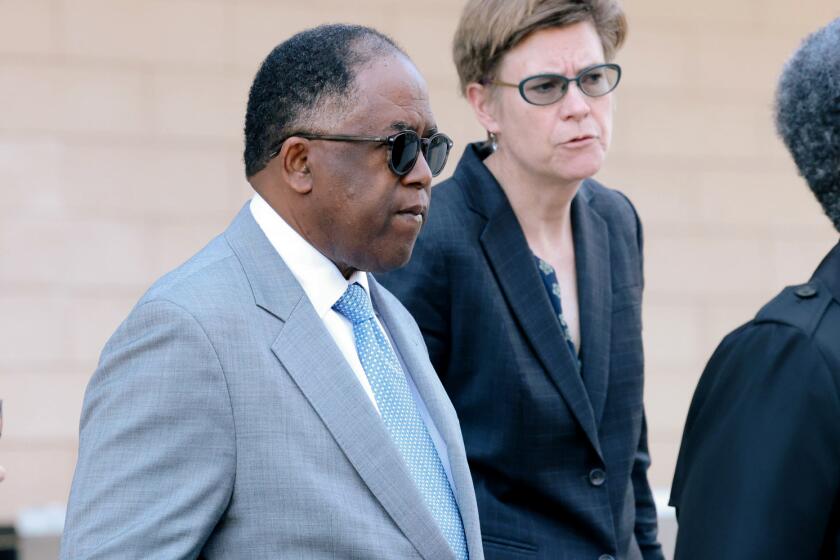No “pattern of corruption” in contracts inked during Ridley-Thomas’ tenure, probe finds

- Share via
The bulk of contracts Los Angeles County inked during the 12-year tenure of former Supervisor Mark Ridley-Thomas, the formidable politician convicted last year on corruption charges, were untainted by fraud, according to a years-long outside investigation.
“We did not identify a pattern of corruption and fraud,” Dan Shallman, a partner at the law firm Covington & Burling, told county supervisors Tuesday. “That’s the good news.”
The bad news, Shallman continued, is that the county’s contracting process, closely scrutinized during the nearly three-year forensic audit, is full of holes.
The county rarely suspends problem contractors, the firm found. Workers discuss county business on their personal phones. And contracts are sometimes awarded directly to a vendor and not put out to bid — without a clear explanation why.
Those were among the key findings of the investigation ordered by the Board of Supervisors in October 2021, soon after Ridley-Thomas was indicted. A federal jury later convicted Ridley-Thomas of one count each of bribery, conspiracy and honest services mail fraud and four counts of honest services wire fraud for routing $100,000 of campaign money through USC to a nonprofit run by his son.
Ridley-Thomas, who served on the county board from 2008 to 2020 before joining the L.A. City Council, remains free while he appeals his conviction.
Veteran L.A. County politician Mark Ridley-Thomas is found guilty of federal corruption charges related to benefits his son received at USC.
In the wake of the indictment, the board tapped the firms Covington & Burling and FTI Consulting to review the county’s policies and figure out whether other contracts were tainted during Ridley-Thomas’ tenure.
Three years later, after scrutinizing 200 contracts worth roughly $1.7 billion, representatives of the two firms said their findings were a “mixed bag,” and they could not give the county government “a clean bill of health.”
Too often, they said, the county does a poor job vetting vendors who receive millions of dollars of public money.
“At the end of the day, the county needs to know who it’s doing business with,” said Duane Campbell, a forensic accounting expert with FTI Consulting.
Supervisor Hilda Solis, who pushed for the inquiry, called the findings “sobering.”
“Our duty is to make sure we’re really being very good about our taxpayer dollars,” she said.
Citing attorney-client privilege, the county has previously declined to tell The Times how much it paid either firm for the investigation, which stretched at least a year longer than anticipated.
The public also appears unlikely to see the final report. The county did not directly address a request from The Times for the report.
“We have no comment on this confidential independent review, other than to note that the County’s next step following today’s public presentation will be to fully analyze and operationalize Covington’s recommendations,” the county said in a statement.
The contents of the investigation were boiled down to nine slides for a public presentation — including a title page and one that said simply “Conclusion.”
Representatives of both firms kept their public remarks vague Tuesday, skating over specific instances of corruption they may have come across and focusing instead on recommendations to strengthen county contracting.
Those improvements included creating a new “Chief Ethics & Compliance Officer” position and bolstering the county’s “revolving door policy,” intended to prevent conflicts of interest for officials who have recently left government service.
The firms’ recommendations were pounced on by supporters of Measure G, the governance reform measure on the Nov. 5 ballot. The measure would create an ethics compliance officer — akin to what the firms recommended — as well as nearly doubling the size of the board and creating a new elected executive position similar to a mayor.
Your guide to Measure G: Expanding the L.A. County Board of Supervisors, electing a county executive
This November, voters will decide whether they want to reshape Los Angeles County government, nearly doubling the size of the Board of Supervisors and making the county’s top executive an elected position.
“It’s clear that our outdated governance model has fueled corruption, powered by weak ethics oversight and the unchecked revolving door of influence,” said Measure G campaign Chair Morgan Miller in a statement.
The county supervisors, who are divided on the measure, have said they plan to move forward with an ethics commission, regardless of the election results.
More to Read
Sign up for Essential California
The most important California stories and recommendations in your inbox every morning.
You may occasionally receive promotional content from the Los Angeles Times.












